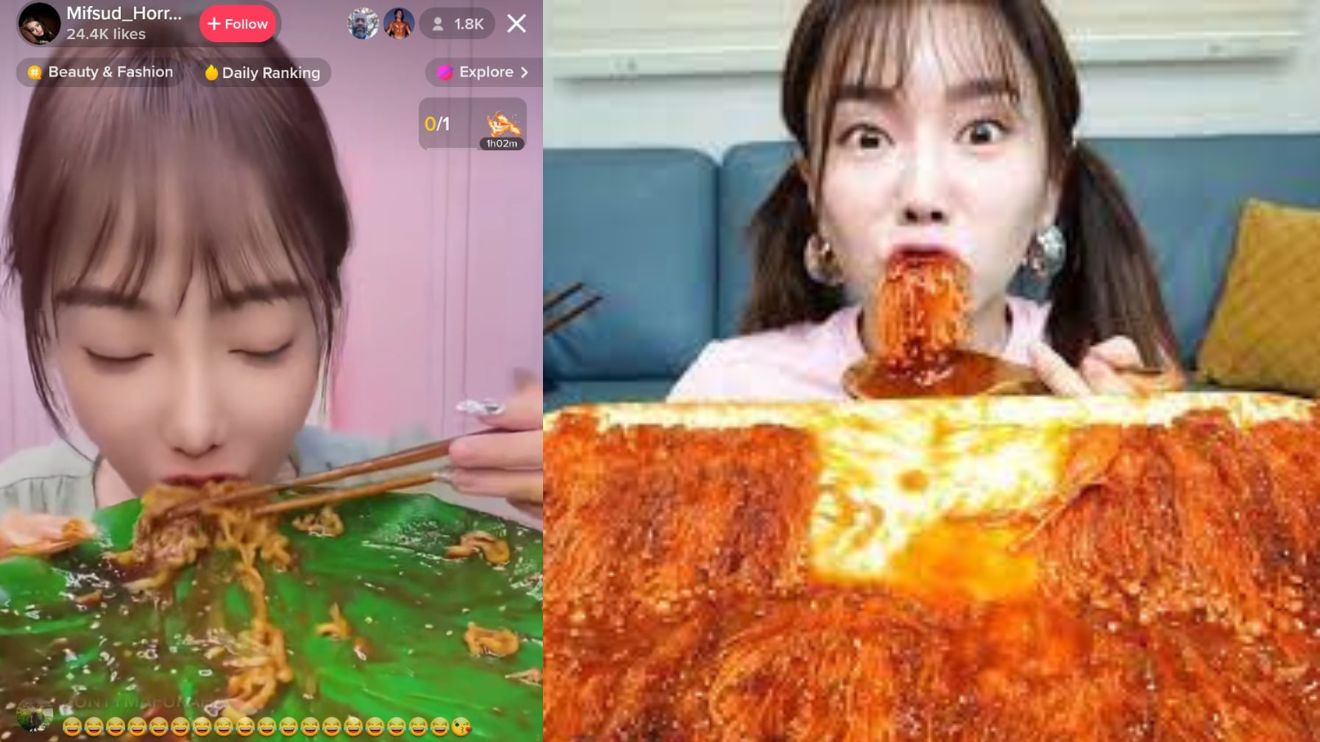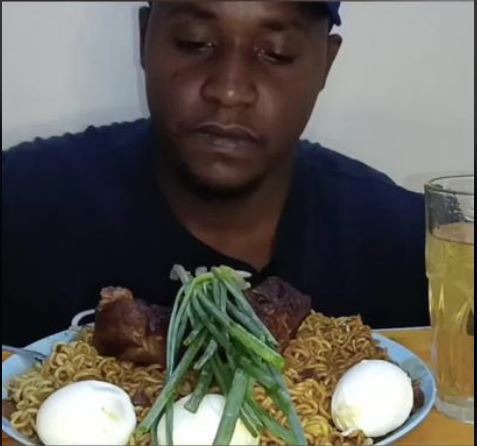Viral gluttony? Mukbang is becoming a popular trend with Kenyan TikTok
If you’re a TikTok user in Kenya, chances are you’ve stumbled upon the trend of “food challenges” on your For You page or on a live session.
These challenges usually involve people trying to eat large quantities of food within a certain time limit or attempting to finish an enormous meal in one sitting.
While it might seem harmless fun, overeating can lead to unpleasant health issues like bloating and indigestion.
In extreme cases, it can even cause stomach rupture or choking.

The food challenge trend on TikTok is similar to a type of video content that originated in South Korea called “mukbang.”
Mukbang combines the Korean words for “eating” and “broadcast”.
Also read: Top Kenyan TikTokers share their secrets on how to grow your account
So, why do people like these videos?
A TikTok user, Geoffrey Muhambi told Nairobi News, “I like watching the videos out of sheer curiosity, like, what are they even consuming so much food.”
“In my head, I think this is food for four or five meals. How are they even making money shooting this content,” Muhanbi added.
Watching the videos, you notice that the content creators normally have a huge audience of over 5,000 viewers at any given time.
Also read: The rise and quick fall of trending KOT rapper, Lil Mbwa

Most of the viewers don’t tip or send gifts. But their ranking for the content creator on the TikTok app usually goes higher due to the engagement on the live sessions.
Another TikToker and college student Mary Kamau said, “In a weird way, I find it comforting to watch the content creators eat, as long as it is not me who will end up with a full stomach and the discomfort that follows. Wacha ajibambe.”
Additionally, some people find the videos entertaining or amusing. Watching someone eat large quantities of food can be a source of entertainment, and it can be interesting to see the variety of foods from different cultures.
It’s worth noting that not all mukbang or food challenge videos involve excessive or unhealthy eating behaviors.
Some creators may choose to eat large amounts of food as part of a performance or showcase different types of food visually appealingly.
Also read: TikToker Qui Gakuo: Azziad Nasenya scared me but now she’s my mentor
Mukbang in Kenya

It has become a form of entertainment in South Korea, with some Mukbang “stars” earning money from advertising and sponsorships.
In Kenya, the adoption of the trend is slower. At the moment, very few Kenyan content creators on TikToker have gone viral attempting this trend.
One of them is Steve K, who has a huge following that enjoys his videos of him eating Kenyan-centric cuisine. He has amassed a following of over 78K people.

Another one is Mercy Waringa, who also specializes in weird food choices like cow hoofs, millet ugali, fufu, among others. She has a following of over 15K people on her TikTok profile.
The two always direct traffic back to their YouTube channels, where their content is monetized.
Also read: Maina Kageni ‘bails out’ whistling TikToker Priscilla wa Imani with fare and lunch
Dangers of Mukbang
There are several potential dangers associated with the mukbang trend. One is the risk of developing unhealthy eating habits, such as overeating or binge eating.

Watching someone eat large quantities of food can also trigger unhealthy cravings and lead to weight gain.
Additionally, there is a risk of developing an addiction to watching mukbang videos, which can lead to neglecting other important aspects of one’s life, such as socializing, work, and exercise.
Another potential danger is the impact on mental health. Eating disorders like Anorexia and Bulimia can be triggered by watching others eat, and some people may also feel guilt, shame, or anxiety after watching a mukbang video.
Also read: Sakaja trends on Twitter, TikTok in academic papers puzzle



